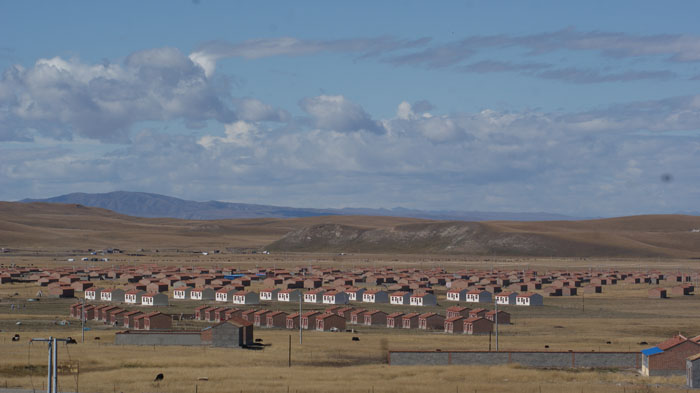Lecture by Dr. Jarmila Ptackova, Central Asian Studies at the Humboldt University Berlin
Date: Thursday, 06.02.2014, 18.00
Location: Technical University of Berlin Marchstr. 23, Room MAR 0009

Picture: Jarmila Ptackova
The ,Great Development of the West’ (Chin : Xibu because kaifa) shifted the focus of the Chinese central government from the east of the country to the West. As part of this comprehensive development strategy generous programs to expand infrastructure, urbanization and industrialization have been implemented. The official main objectives of the ‘Great Development of the West’ are an economic development of rural areas, to improve the socio-economic situation of the local population, as well as a strengthening of conservation to prevent erosion on the plateau and the strong sedimentation in the largest rivers in China. Many of the measures that are taken to achieve these goals, leading to massive urbanization of Tibetan grasslands. This is not only changing the landscape very strong. The entire design of living spaces is changed and this requires new forms of life and survival strategies of the local population, the Tibetan herdsmen. The traditional livestock industry to be modernized and the pastoralists further encouraged to sedentary life. They should move into newly created settlements where they have to adapt their lives to a completely new environment and to seek an alternative source of income. However, this situation poses a challenge not only for the affected population , but also for the environment and not least for the state.
Dr. Jarmila Ptackova studied Sinology and Central Asian Studies at the Humboldt University Berlin and received her doctorate in Tibetology. For several years she was engaged in the impact of China’s development policies on the lives of the Tibetan people. She is currently a research fellow at the Institute for Central Asian Studies of the HU and is working on the research project “Nature versus economy” transformation and urbanization of Tibetan grassland areas in the environmental protection zone of the Three River Sources in Qinghai Province.
An event of the Center for Cultural Studies on Science and Technology in China in cooperation with stadtkultur international ev
For more information see also www.china.tu-berlin.de